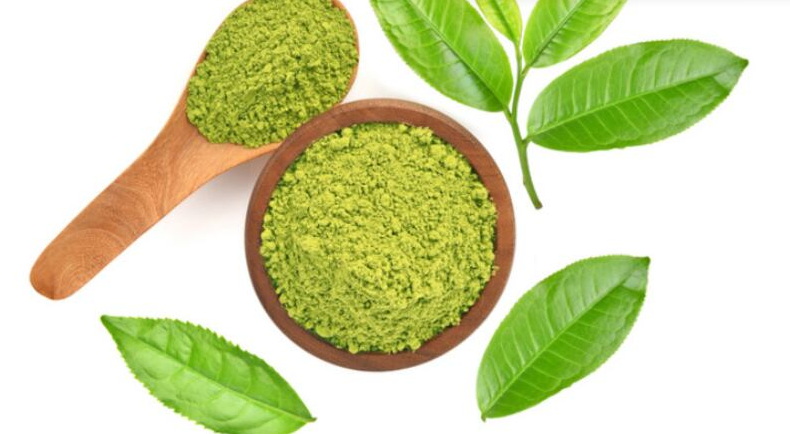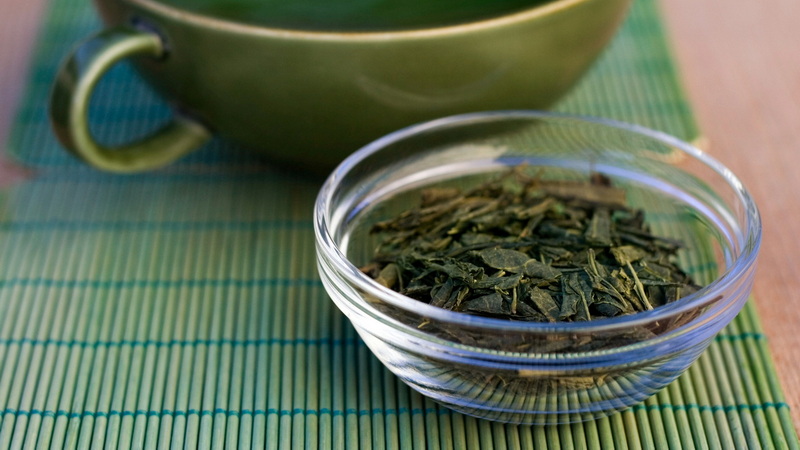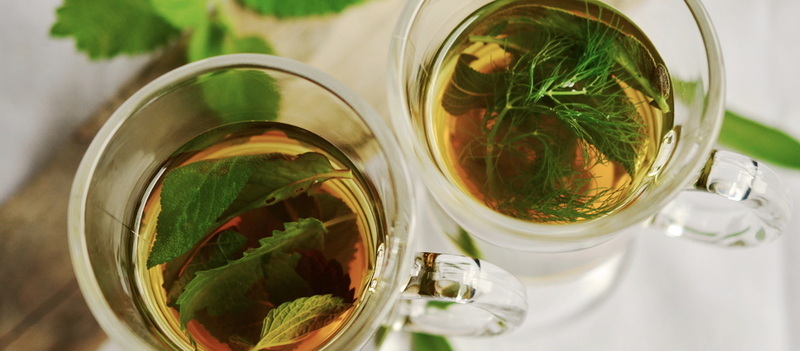Content Menu
● What is Green Tea Extract?
● Uses and Potential Benefits of Green Tea Extract
>> Antioxidant Properties
>> Cardiovascular Health
>> Weight Management
>> Brain Health
>> Cancer Prevention
>> Other Potential Benefits
● Safety Considerations
>> Potential Toxicity
>> Regulatory Concerns
>> Health Canada's Assessment
● FDA Regulatory Status
>> GRAS Status
>> Kemin Industries GRAS Notice
>> Concerns and Criticisms
>> Dietary Supplements
● Conclusion
● FAQ: Frequently Asked Questions About Green Tea Extract
>> 1. What are the main benefits of green tea extract?
>> 2. Is green tea extract safe to consume?
>> 3. How is green tea extract regulated by the FDA?
>> 4. Can green tea extract interact with medications?
>> 5. What should I look for when buying green tea extract supplements?
● Citations:
Green tea extract has gained considerable attention for its potential health benefits, leading to its widespread use in dietary supplements and functional foods. However, the regulatory status of green tea extract, particularly concerning its approval by the U.S. Food and Drug Administration (FDA), remains a topic of interest and scrutiny. This article aims to provide a comprehensive overview of green tea extract, its uses, potential benefits, safety considerations, and its regulatory standing with the FDA.

What is Green Tea Extract?
Green tea extract is a concentrated form of green tea, derived from the leaves of the *Camellia sinensis* plant[3][9]. It encapsulates the active ingredients found in green tea, such as polyphenols, catechins, and caffeine, in a more potent form[3]. The primary catechin in green tea extract is epigallocatechin gallate (EGCG), which is known for its antioxidant and anti-inflammatory properties[3][5].
The composition of green tea extract can vary depending on the source material and processing methods[9]. Standardized green tea extracts typically contain a defined range of EGCG content (e.g., 40-50%) and total catechin content (e.g., 70-80%), with a caffeine content of not more than 5%[9]. These extracts are prepared using water and/or food-grade organic solvents to ensure the purity and safety of the final product[9].
Green tea extract is available in various forms, including:
-Powders: Used in dietary supplements, beverages, and food products.
-Capsules: Convenient for oral consumption as a dietary supplement[3].
-Liquids: Can be added to beverages or used in cosmetic formulations.
Uses and Potential Benefits of Green Tea Extract
Green tea extract is promoted for a wide array of health benefits, primarily attributed to its high antioxidant content[2][3]. These benefits include:
Antioxidant Properties
Green tea extract is rich in catechins, which are potent antioxidants that help protect the body against oxidative stress by neutralizing free radicals[3]. Oxidative stress is implicated in aging and various diseases, including cancer, heart disease, and neurodegenerative disorders[3].
-Increased Antioxidant Capacity: Studies have shown that green tea extract can increase the body's antioxidant capacity, enhancing its ability to combat oxidative damage[3].
Cardiovascular Health
Regular consumption of green tea and its extract has been associated with improved cardiovascular health[2][6][7]. The potential benefits include:
-Reduced Blood Pressure: Green tea may help lower blood pressure, reducing the risk of stroke and coronary heart disease[6].
-Improved Lipid Profile: Green tea supplementation has been shown to decrease total cholesterol (TC) and low-density lipoprotein (LDL) levels, contributing to a healthier lipid profile[10].
It has been demonstrated that green tea supplementation significantly decreased TC when females or both males and females were included, the dosage of supplementation was less than 1,000 mg/d, the baseline BMI was between 25-29.9 kg.m –2, and the baseline value of TC was more than 200 mg/dl[10].
Weight Management
Green tea extract is a common ingredient in weight loss products due to its potential to promote weight loss[3]. The combination of catechins and caffeine in green tea extract may contribute to these effects by:
-Boosting Metabolism: Green tea extract may increase energy expenditure and fat oxidation, leading to weight loss[3].
-Reducing Body Weight: Some studies suggest that green tea may protect against the development of coronary heart disease by reducing body weight[6].
Brain Health
The antioxidants in green tea extract, particularly EGCG, have been shown to protect brain cells from oxidative stress[3]. This protection can help reduce brain damage that could lead to mental decline and brain diseases like Parkinson's, Alzheimer's, and dementia[3].
-Improved Memory and Brain Function: Green tea extract has been shown to enhance the connection between different parts of the brain, improving memory and cognitive function[3].
Cancer Prevention
Green tea and its extracts have been studied for their potential in cancer prevention[2][6][7]. The antioxidants in green tea may help protect against cell damage that can lead to cancer[3].
-Antitumor Properties: Green tea catechins could also act as antitumorigenic agents and as immune modulators in immunodysfunction caused by transplanted tumors or by carcinogen treatment[6].
-Reduced Cancer Risk: Green tea consumption has been linked to the prevention of many types of cancer, including lung, colon, esophagus, mouth, stomach, small intestine, kidney, pancreas, and mammary glands[6].
Other Potential Benefits
In addition to the above, green tea extract has been investigated for its potential role in:
-Regulating Cholesterol: Green tea with antioxidants delivers many health benefits, such as regulating cholesterol[2].
-Anti-inflammatory Response: Green tea reduces the inflammatory response[2].
-Diabetes Management: Green tea can exert positive effects on diabetes[2].
-Antibacterial Properties: Green tea polyphenols have also been observed to exhibit antibacterial properties[2].

Safety Considerations
While green tea extract offers numerous potential health benefits, it is essential to be aware of the safety considerations associated with its use[3].
Potential Toxicity
Green tea extract can be toxic when taken in excess[3]. High doses of green tea extract may cause liver damage and other adverse effects. It is crucial to adhere to recommended dosages and consult with a healthcare professional before taking green tea extract supplements[3].
Regulatory Concerns
There have been concerns raised about the safety data on EGCG-based food additives[5]. The FDA has, in some instances, relied on industry-funded studies to conclude that green tea extract is safe, which has drawn criticism[5].
Health Canada's Assessment
Health Canada has assessed green tea extract for safety and has established conditions under which standardized green tea extract can be safely consumed as a supplemental ingredient in supplemented foods[9]. This assessment applies to catechin-enriched green tea extracts derived from the leaves of Camellia sinensis[9].
FDA Regulatory Status
The FDA regulates food additives and dietary supplements under different sets of regulations. Green tea extract can be used in food and beverages as an antioxidant[1]. In this context, it is subject to the FDA's Generally Recognized as Safe (GRAS) regulations[1][5].
GRAS Status
The GRAS designation means that a substance is considered safe by qualified experts for its intended use[1][5]. Companies can submit a GRAS notice to the FDA, providing evidence that their product is safe based on scientific procedures[1]. The FDA then evaluates the notice and may issue a letter of no objection, effectively acknowledging the GRAS status of the ingredient[5].
Kemin Industries GRAS Notice
In 2018, Kemin Industries notified the FDA of its plan to sell Oil-Soluble Green Tea Extract (OS-GTE) for use as an antioxidant in snacks, baked goods, and meats[1][5]. Kemin concluded that OS-GTE was GRAS based on scientific procedures[1]. The FDA did not object to this determination, allowing Kemin to market OS-GTE for its intended use[5].
Concerns and Criticisms
Despite the GRAS status, concerns have been raised about the FDA's reliance on company-funded studies and the potential for conflicts of interest[5]. Critics argue that the FDA should conduct its own thorough review of the safety data on green tea extract, rather than relying on industry-funded experts[5].
Dietary Supplements
When green tea extract is sold as a dietary supplement, it is regulated under the Dietary Supplement Health and Education Act (DSHEA)[5]. Under DSHEA, dietary supplement manufacturers are responsible for ensuring that their products are safe and accurately labeled[5]. The FDA does not approve dietary supplements before they are marketed, but it can take action against products that are found to be unsafe or mislabeled[5].
Conclusion
Green tea extract has garnered significant attention for its potential health benefits, which are primarily attributed to its high antioxidant content. While it is considered safe for use in food and beverages under the FDA's GRAS regulations, concerns have been raised regarding the reliance on industry-funded studies for safety assessments. As a dietary supplement, green tea extract is subject to the DSHEA, which places the responsibility for safety and accurate labeling on the manufacturers. Consumers should be aware of the potential risks associated with excessive intake and consult with healthcare professionals before incorporating green tea extract supplements into their regimen.

FAQ: Frequently Asked Questions About Green Tea Extract
1. What are the main benefits of green tea extract?
Green tea extract is known for its antioxidant properties, which help protect against oxidative stress. It may also support cardiovascular health by reducing blood pressure and improving lipid profiles. Additionally, it has been studied for its potential in weight management, brain health, and cancer prevention.
2. Is green tea extract safe to consume?
When taken in moderation, green tea extract is generally considered safe. However, high doses may lead to toxicity and liver damage. It is important to adhere to recommended dosages and consult with a healthcare professional before use.
3. How is green tea extract regulated by the FDA?
The FDA regulates green tea extract differently depending on its use. When used as a food additive, it is subject to the GRAS regulations. As a dietary supplement, it falls under the DSHEA, which places the responsibility for safety and accurate labeling on the manufacturers.
4. Can green tea extract interact with medications?
Yes, green tea extract may interact with certain medications, such as blood thinners and medications for heart conditions. It is essential to consult with a healthcare professional if you are taking any medications before using green tea extract supplements.
5. What should I look for when buying green tea extract supplements?
When purchasing green tea extract supplements, look for products that are standardized for EGCG and total catechin content. Ensure that the product has been tested for purity and potency by a third-party laboratory. It is also important to choose reputable brands and read customer reviews before making a purchase.
Citations:
[1] https://www.fda.gov/media/126906/download
[2] https://pmc.ncbi.nlm.nih.gov/articles/PMC6412948/
[3] https://www.healthline.com/nutrition/10-benefits-of-green-tea-extract
[4] https://www.tiprpress.com/ywpjyj/article/pdf/20211226?file_name=B3147901C258E4906B492BA210E8E029D066D7E3AD76D56B0BFA74F1B4E7AC3BE05483707C8968B3D90F3BF39AA09C180EBB849988D3D50E2F7373E32FD3F2CB&open_type=self
[5] https://www.ewg.org/news-insights/news/2021/11/fda-not-food-companies-should-decide-whether-green-tea-extract-safe
[6] https://pmc.ncbi.nlm.nih.gov/articles/PMC2855614/
[7] https://www.webmd.com/vitamins/ai/ingredientmono-960/green-tea
[8] https://onlinelibrary.wiley.com/doi/10.1155/2021/7170736
[9] https://www.canada.ca/en/health-canada/services/food-nutrition/public-involvement-partnerships/notice-modification-list-permitted-supplemental-ingredients-permit-use-green-tea-extract-supplemental-ingredient-foods/document.html
[10] https://www.frontiersin.org/journals/nutrition/articles/10.3389/fnut.2022.1084455/full






























